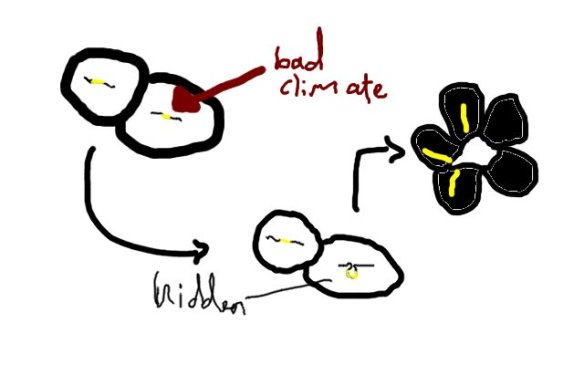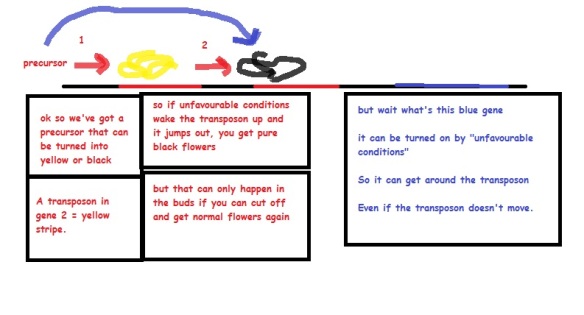Sophia Frentz, in her Honours year of a science degree with a major in genetics, has been in touch regarding the posting on the reversion of Petunia Bumblee to an all-black flower (instead of sporting yellow stripes on the petals). She writes:
“It’s an example of epigenetics when flowers do things like that. Flower colouring is ‘crazy genetics’ and we don’t really know what is going on. But the black would probably be the normal (wild?) colour while the yellow stripe would happen only under good conditions.
“This is thought to be because stripes, etc., act like landing stripes for pollinators, and if conditions don’t seem like they’ll be ideal for seed-making, why would you have landing stripes? Partially striped flowers are because cells divide, basically, so are when a mutation happens in one spot.
“If the climate is making the plant unhappy this can make genes hide (or ‘be hidden’, by proteins that hang out on DNA) and so they don’t get expressed. That’s why if you plant flowers at the wrong time they might not have some stripes. And part-striping can occur if one half of the flower is by chance colder/more acidic/damper/unhappier than the other and so the gene that makes the stripe gets hidden.

Illustration: Sophia Frentz
“Or … transposons are things that can jump around the genome and mess it up. They don’t do it very much because they’re hidden (the same way the genes are). A lot of fancy flower things are made by making transposons jump into particular places (i.e., making them jump a lot and hoping): this funky-patterned corn is due to that.
“So if the yellow stripe is made by a jumping transposon then unhappy climate might make it jump out/not function like it usually does.”

Illustration: Sophia Frentz
So that’s clear, then.
Sophia manages a cool science blog, SciCo (Science Community of Otago) that deals with anything of interest in the huge field that falls under the general heading “science”.

Pingback: Spotlight on Science: Molecular Biology | SciCO: Science Community Otago